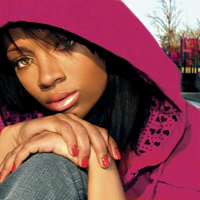
For my last music pick of the year, I thought long and hard about turning in a standard top-10 list. I have made one every year for the past decade, listing with careful consideration the albums that moved me, changed me or made me dance. But this year, I experienced a profound shift not just in what I listened to, but in how I listened. In 2007, I stopped buying albums.
Earlier this year, flush with an unexpected cheque for $100, I decided to blow some money in a record store. It had been lean times for a while, and blowing the whole wad on CDs seemed the height of decadence. I replaced a couple albums permanently "borrowed" by friends, imports at $23.99 a pop, and then bought two new albums: Bill Callahan's gorgeous, pastoral folk record Woke On A Whaleheart and the Hawaii-via-Edith Piaf disc Lo, Lonesome Island by Himalayan Bear (aka Ryan Beattie, of Victoria's Chet).
My C-note was gone in a flash, or rather, in four flashes. I was thrilled with my purchases, but a little disheartened by how far my money went. I remembered $100 worth of CDs feeling a little heavier in my hand. Still, I brought the records back to the office, and unloaded them on my desk, ready for an afternoon with my headphones, giddily unwrapping the cellophane and loading them into my computer. A co-worker a few years my junior walked by.
"You still buy CDs?" he said, laughing.
I held them to my chest and gave him my standard spiel: the tactile experience, the community of the record store, the cover art, blah, blah, blah. He laughed and walked away. This shock at my archaic habit would rear its head several times more throughout the week: a friend visiting my shoebox apartment marvelled at the walls lined with racks of jewel cases, and advised me to get it under control. Another friend, as I cued a record on my turntable, declared me the youngest person he knew who was "hopelessly besotted with the old-man rock lifestyle." Another confided in me that he had bought just two CDs in the past four years. Yikes. There is a fine line between "old-school" and "out-of-touch." I consider myself smart enough to know the signs. I relented. This was the year I finally swore off CDs and gave my money to iTunes and Amazon.com.
It's been a hard road to hoe. The music industry has conditioned me well, and, after years of downloading things without paying, my instinct is to run to the record store if I hear something I like, and buy the physical copy. The mentality that music must be held in one's hand is difficult to break. After legally downloading one of my favourite albums this year, The Handsome Furs David Bowie-meets-Gordon-Lightfoot effort Plague Park, I rushed to my local record shop to buy it, only to realize that I already had.
In my last column, I bemoaned the death of the album proper: a series of songs alike in concept and theme, executed as a whole and meant to be heard in sequence. Allow me to be a contrarian and now espouse the joys of not having albums. My much-maligned racks of jewel cases contain countless albums with one or two great songs, two or three okay songs, and a whole lot of crap. Looking at them now, I realize there is a huge financial investment there, which, many times, didn't pay off. In other words, the music industry screwed me. And now, I feel no guilt in aiding in its demise.
2007 was the year the music industry had its most public debate yet about how to monetize on music. Whether through Radiohead's public, some say gimmicky, decision to release its album through a pay-what-you-want scheme, or the head of Universal Music revealing himself to be a dinosaur with a deep-seated resentment of technology, it would seem there is much hand-wringing over how the music industry can become profitable again. I, like many other music fans, shared this concern. This year, I finally looked at my own bank statement and realized it had taken enough of my $100 windfalls. It could fend for itself.
And now, for my pick: "Lip Gloss," by New York's Lil Mama is the most overtly commercial song in my iPod, and indeed I acquired it in an overtly commercial fashion: for 99 cents, I bought this disposable single as if I were buying a candy bar, knowing I'd be done with it in a matter of minutes. Basically a commercial for make-up, name-checking brands with rabbiting rhymes set against a high-school drum-line beat, "Lip Gloss" is an infectious pop song, pure fluffery and pure fun. Not surprising for a pop artist with a mega-catchy hit, the rest of Lil Mama's output makes me cringe. Lil Mama's single was the best 99 cents I spent all year, but the rest of her album was the best $20 I didn't.
Related Tyee stories:
- The Hives' Latest
Can random be contrived? - The Motorcade Sped On
Early hip hop from Steinski and Mass Media. - Thought Old-School Albums Were Dead?
They're ba-ack! Midlake's secret gems.














Tyee Commenting Guidelines
Comments that violate guidelines risk being deleted, and violations may result in a temporary or permanent user ban. Maintain the spirit of good conversation to stay in the discussion.
*Please note The Tyee is not a forum for spreading misinformation about COVID-19, denying its existence or minimizing its risk to public health.
Do:
Do not: